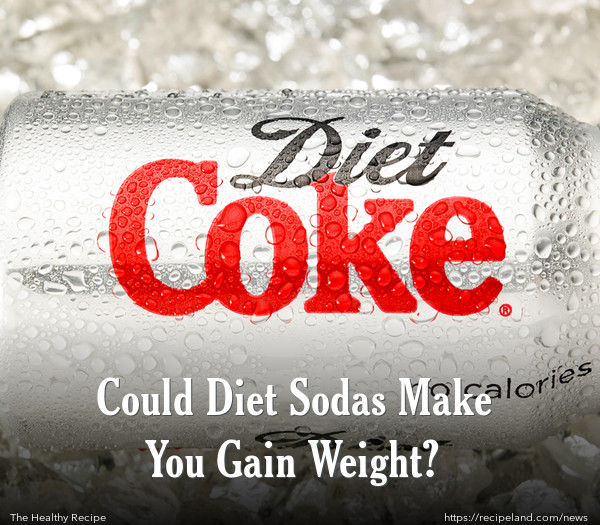Food and beverage industry reps deny the possible role of weight gain from artificial sweeteners such as aspartame (Equal, NutraSweet), saccharin (Sweet’N Low, Necta Sweet), sucralose (Splenda), and others commonly found in “diet” products.
Behavioural neuroscience professor Susan Swithers, of Purdue University in Indiana found that people who drink diet sodas have a higher risk for weight gain and obesity than people who avoid soft drinks altogether. People who drink soda – with sugar or artificial sweeteners – also have an increased risk for heart disease, type 2 diabetes and metabolic syndrome.
Swithers has seen metabolic disruptions and weight gain in animal studies caused by artificial sweeteners, even though they don’t contain any calories.
“Artificial sweeteners are much sweeter than sugar—saccharine is 300 times sweeter than sugar, aspartame 180 times sweeter, and sucralose 600 times sweeter. Some experiments have shown that sweet taste, whether it’s derived from sugar or artificial sweeteners, increases appetite.”(2)
This might explain the link between weight gain and calorie-free “diet” sweeteners. Even though artificial sweeteners don’t add extra caloric intake, their sweetness alone can make people feel hungrier than they actually are.
People who are trying to lose weight may drink a diet soda, or eat “low-calorie” processed foods that have been artificially sweetened, and reward themselves later in the day with a sweet treat or other high calorie snack.
When it comes to dieting and consuming diet soft drinks, calorie counting may not add up to weight loss. If consuming foods and drinks with artificial sweeteners, the sweeteners actually trick the brain into thinking the body needs more calories.
Swithers believes that “there are multiple things that are contributing to this. Psychology is a factor, but physiology can also be altered."
One study recorded waist measurements and diet soda consumption in nearly 500 people in San Antonio, Texas for more than 10 years. This research supports Swithers’ findings.
“As a group, participants who consumed artificially sweetened soft drinks saw a 178 percent greater increase in waist circumference compared with those who did not, and those who consumed two or more beverages containing artificial sweeteners per day saw a 500 percent (or almost three times greater) increase.”(2)
Aspartame has been shown to increase waist circumference and weight gain, as well as raise insulin levels if consumed in large quantities.
“Results from several large-scale population studies suggest that regular consumption of artificial sweeteners such as aspartame and sucralose, particularly in diet soda, may actually contribute to rather than combat weight gain and type 2 diabetes.”(2)
Diet sodas are one of the most widely consumed beverages with artificial sweeteners, but most “low calorie” foods also contain saccharin, sucrose or aspartame. Check labels on processed foods labeled “low calorie,” “low fat” and “diet.” Even low fat yoghurt usually contains artificial sweeteners.
SOURCES: (1)Susan Swithers, Ph.D., professor of behavioral neuroscience, Purdue University, West Lafayette, Ind.; July 10, 2013, Trends in Endocrinology and Metabolism;(2)Lowen, T. (2011). Sweet debate: do artificial sweeteners contribute to rather than combat obesity?. Minnesota Medicine, 94(8), 20-23. Image courtesy of Keerati/ FreeDigitalPhotos.net










Comments
With respect to sugars and low-calorie sweeteners, these ingredients can be enjoyed in moderation and are not unique risk factors for cancer. Regulatory agencies around the globe confirm the safety of sweeteners, and leading health organizations condone their use too. As with any source of calories, achieving a sensible dietary balance and offsetting intake with physical activity is a good rule of thumb.
-American Beverage Association